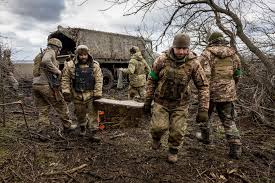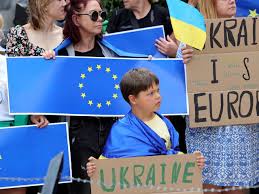Will There Be a World War 3? Current Tensions and Perspectives

Introduction
The question of whether there will be a World War 3 has become increasingly relevant in today’s geopolitical climate. With rising tensions among global powers, ongoing conflicts, and the potential for military escalations, concerns about another large-scale international conflict are on the rise. This article explores current events and factors contributing to such fears.
Current Global Tensions
In recent years, several conflicts and geopolitical tensions have escalated, sparking discussions about the potential for a third world war. Key areas of concern include:
- Russia-Ukraine Conflict: Russia’s invasion of Ukraine in 2022 has led to widespread condemnation from Western nations and significant military support for Ukraine. The conflict has increased NATO’s military presence in Eastern Europe, leading to heightened tensions between Russia and NATO members.
- China-Taiwan Relations: China’s increasing assertiveness towards Taiwan has raised alarms worldwide. Any military action by China to assert control over Taiwan could provoke a significant military response from the United States and its allies, escalating into a broader conflict.
- Middle East Instability: Ongoing tensions in the Middle East, particularly regarding Iran’s nuclear ambitions and the Israeli-Palestinian conflict, continue to pose risks of regional flare-ups that could draw in global powers.
Global Response and Military Preparedness
World leaders have responded to these increasing threats with various diplomatic and military strategies aimed at preventing conflict. NATO has reinforced its eastern flank and conducted military exercises in response to Russian aggression. Similarly, the United States has reiterated its commitment to defending its allies in Asia and Europe.
Public Opinion and Predictions
Public sentiment regarding the potential for a World War 3 is mixed, with many expressing concern over the possibility of escalating conflicts. Surveys indicate that a significant portion of the population is wary of the direction of international relations, with fears that current events may spiral out of control. Analysts predict that while a full-scale global conflict is unlikely, regional conflicts could arise, potentially involving multiple nations.
Conclusion
While the fear of a World War 3 looms amidst current geopolitical tensions, the predictions remain uncertain. The international community is acutely aware of the implications of any conflict escalation and is actively seeking to avert a catastrophic scenario. Through diplomacy and military preparedness, the hope remains that dialogue will prevail over war. Readers should remain informed about these developments as they unfold, given their potential global impacts.
You may also like

An Overview of the Ongoing Situation in Ukraine

The Sun UK: Your Guide to Current News and Events

Unpacking the Lucy Traitors Controversy
SEARCH
LAST NEWS
- Remembering Wendy Richard: The Promise to Co-Star Natalie Cassidy
- How Did Anglian Water Achieve an ‘Essentials’ Rating for Mental Health Accessibility?
- Shai Hope Leads West Indies in T20 World Cup Clash Against South Africa
- What We Know About Weston McKennie: Future at Juventus and Past at Leeds
- What We Know About the Upcoming Live Nation Antitrust Trial